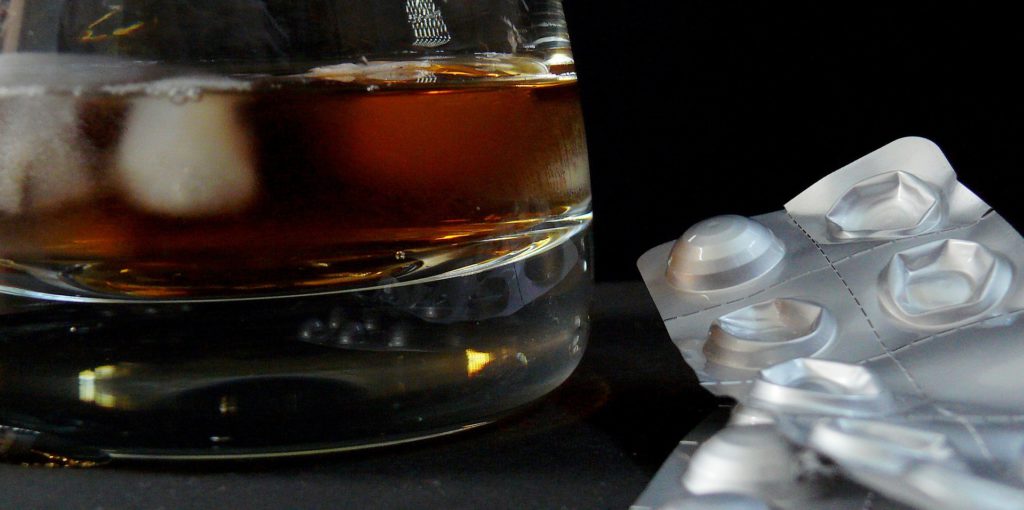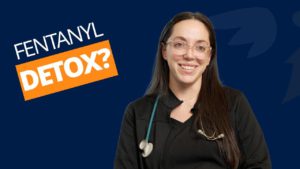
Breaking Chains with Summer House: Top Drug Addiction Treatment Center in Miami
As the shadows of drug addiction continue to grip many lives, finding the right treatment center becomes a beacon of hope. Summer House, located in

May 16, 2020
Self-medication is a significant risk factor for substance use disorders. Many people with mood and anxiety disorders use substances like alcohol to cope with the difficult symptoms of their disorders. People who suffer from physical ailments like chronic pain also frequently turn to alcohol to escape their symptoms. Over time, self-medicating with alcohol can lead to problems with substance abuse and addiction, as well as worsened physical and mental health.
What is self-medication, and how exactly can it lead to alcohol addiction? Here’s what you need to know about self-medication, and what to do next if you or your loved one is using alcohol to cope with your symptoms or health condition.
Self-medication is the act of using drugs and/or alcohol to treat health problems that are self-diagnosed or diagnosed by a medical doctor. Self-medication isn’t always bad or harmful. For instance, people may use over-the-counter medicines to treat symptoms of the common cold or flu. Others may use herbal or nutritional supplements to boost their immunity and combat illness and disease. Self-medication becomes harmful when people choose the wrong therapy such as alcohol, or when they use drugs and alcohol to mask other serious health conditions.
An estimated 20% of people who suffer from PTSD use drugs or alcohol in an attempt to find relief from their symptoms. The overall prevalence of self-medication using drugs and alcohol among those with mood or anxiety disorders ranges between 22% and 24%. Self-medication is also a common practice among those suffering from physical pain. In 2016, more than 62% of people who misused opioids reported doing so to relieve physical pain. Alcohol is a legal and widely available substance in the U.S., meaning people who are unable to self-medicate using prescription or illicit drugs can easily turn to alcohol at any time.
There are several reasons people may choose to self-medicate using alcohol. Alcohol is a depressant that slows down the body’s systems to help people feel relaxed. When consumed in high amounts, alcohol can cause drowsiness, lapses in memory, loss of inhibition, and distortion of senses and perception. These effects can often dull physical pain and mental health symptoms, or make people forget about problems in their lives that may be causing stress and anxiety. In short, alcohol can bring temporary relief to those who use this substance to self-medicate.
Additionally, alcohol is usually lower in cost and far more accessible than most other drugs and substances. Alcohol use is also socially acceptable and doesn’t carry a stigma the same way many other substances do. People who use alcohol to self-medicate are often able to fly under the radar without bringing too much attention to their alcohol abuse or to the fact they’re using alcohol to cope with physical or mental illness.
Alcohol is not real therapy and is not an effective long-term treatment for the health conditions affecting those who choose to self-medicate. Alcohol does not treat the root cause of chronic pain and does not treat the root cause of mental health disorders like depression and PTSD. People who use alcohol to self-medicate will often have health-related problems because they’re using the wrong treatment.
Drinking alcohol on a regular basis increases a person’s tolerance level. Those who develop a tolerance to alcohol must start drinking higher amounts to feel the effects. A person who starts drinking high amounts of alcohol regularly faces the risk of becoming dependent on alcohol. Alcohol dependence is characterized by the onset of withdrawal symptoms when a person abruptly stops drinking or reduces the amount they drink.
A person who becomes dependent on alcohol faces a high risk for alcohol addiction, which is characterized by compulsive drug seeking and use that is difficult to control despite harmful consequences. Many people who become addicted to alcohol are unable to stop drinking without professional help and are at heightened risk for life-threatening complications when they attempt to go through alcohol withdrawal on their own without alcohol detox. In addition to struggling with alcohol addiction, these individuals continue to battle worsened physical and/or mental health issues.
Using alcohol to self-medicate poses a number of dangers and risks even to those who aren’t already diagnosed with a medical condition. Alcohol dependence and addiction are among some of the largest risks of using alcohol to self-medicate. Chronic and heavy alcohol use also increases the risk of the following health problems:
People who become dependent on alcohol will also suffer alcohol withdrawal syndrome when stopping or reducing alcohol use. Alcohol withdrawal can be extremely dangerous for those who drink heavily and frequently and can lead to symptoms including fever, hallucinations, severe confusion, and grand mal seizures. The safest way to recover from alcohol dependence is with alcohol detox, which is a treatment in which people can withdraw from alcohol while receiving 24-hour medical care and supervision. Medications are often used in alcohol detox to help reduce and relieve symptoms of alcohol withdrawal.
Alcohol detox is one of several treatments used at alcohol rehab, where people can safely recover from alcohol addiction and the harmful practice of self-medication. Alcohol rehab centers offer treatment programs that address both the addiction and the mental health disorder, or the root cause of self-medication. For example, if you started self-medicating to handle stress, alcohol rehab will train and educate you on how to handle stress more effectively without turning to alcohol.
Alcohol detox is always the first stage of alcohol rehab treatment, and only treats physical symptoms of withdrawal. After completing alcohol detox, patients receive a range of therapies that help them recover from co-occurring disorders like depression and PTSD. Patients also learn important behavioral and life skills that help them navigate everyday life and cope with stress and co-occurring illnesses without practicing self-medication.
If you have a serious medical condition that requires intensive care, some alcohol rehab programs offer inpatient programs in which you can be carefully monitored while receiving alcohol detox and therapy. Inpatient alcohol rehab programs offer the highest level of support to ensure patients can go through detox safely while facing a reduced risk for complications. These programs are ideal for those who may have started self-medicating to treat chronic pain and diseases.
Summer House Detox Center is a private inpatient detox center in Miami, Florida that offers comprehensive treatment programs for drug and alcohol addiction. Alcohol detox in Florida provides quality medical care and strong support that can help you or your loved one experience a long-lasting recovery from alcohol addiction. Our treatment programs are customized for each individual patient to address the root cause of their substance use disorder and the reasons they started self-medicating in the first place.
Contact Summer House today at 800-719-1090 to speak with one of our qualified addiction specialists and begin the treatment process. We are available 24/7 to answer all your questions about alcohol addiction and available treatments. Call us today to learn more about our available alcohol detox programs or visit our detox treatment center in Miami at 13550 Memorial Highway Miami, FL 33161.

As the shadows of drug addiction continue to grip many lives, finding the right treatment center becomes a beacon of hope. Summer House, located in

Are you looking for a safe and compassionate drug detox center in Kendale Lakes, Florida? If so, look no further than Summer House Detox Center.

Are you looking to escape addiction in Homestead, Florida? Summer House Detox Center is one of the best detox centers in the area. Located just
For immediate assistance, please call our Admissions Specialists at 800-719-1090.
Speak With A Qualified Addiction Specialist 24/7